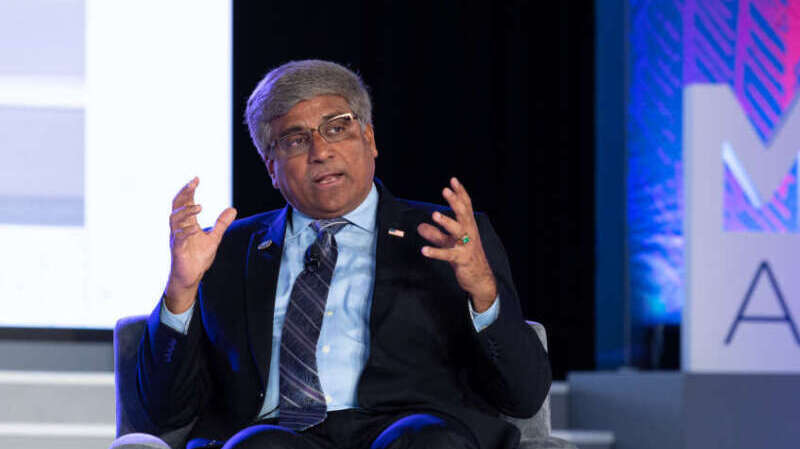
National Science Foundation (NSF) Director Sethuraman Panchanathan announced his resignation on Thursday after five years in the role.
In a public statement, Panchanathan said he was stepping down effective April 24 – despite his six-year term set to end in 2026.
His early departure from NSF follows the agency’s announcement of research program cuts last week and runs contrary to his statements late last year that he planned to finish out his term.
An NSF spokesperson told MeriTalk that NSF Chief of Staff Brian Stone will perform the duties of the director until a permanent replacement is appointed by the White House.
“It has been an honor and privilege to serve as the director of NSF for the last five years. I believe I have done all I can to advance the critical mission of the agency and feel that it is time for me to pass the baton to new leadership,” Panchanathan said.
“I am deeply grateful to both presidents for the opportunity to serve our nation,” he added. “I am also thankful for the strong bipartisan support of Congress and the tireless efforts of the amazing staff at NSF. I wish the very best for the agency and will always look proudly at the numerous accomplishments and impact we have had.”
President Donald Trump nominated Panchanathan to head NSF during his first term. He also served under President Joe Biden.
During his tenure, Panchanathan oversaw the launch of 27 AI institutes across the United States as part of the NSF-led National Artificial Intelligence Research Institutes program.
He also oversaw the launch of the National Artificial Intelligence Research Resource (NAIRR) pilot, which serves as a shared national infrastructure to support the AI research community and power responsible AI use.
In an exclusive interview with MeriTalk last year to discuss the future of the NAIRR, Panchanathan said he wanted to ensure that a lack of resources doesn’t become a roadblock to AI innovation.
“As you can imagine, the AI work increasingly requires resources – whether it is large compute resources, model resources, data resources, algorithmic resources, or software resources,” Panchanathan said. “So, when you need these kinds of resources, if you don’t have them available, only certain groups will be able to do the work.”
“We want to make sure that everybody who has good ideas to contribute, good solutions to contribute, we want them to be able to have the access to resources to be able to do that,” he added. “That is the fundamental reason why we want to ensure that we have a National AI Research Resource that is democratizing AI access for all researchers and practitioners to be able to contribute their ideas and solutions.”
Panchanathan’s departure comes less than a week after NSF announced the termination of awards and funding opportunities that do not align with the agency’s research priorities under the Trump administration. This included research on diversity, equity, and inclusion (DEI) and misinformation/disinformation.
His abrupt departure also breaks from what he told reporters in December, when he indicated he would stick around for the remainder of his six-year term.
“I typically don’t comment on my terms, it is left up to the incoming administration and what they will do in terms of how they want to move forward, and I’m very respectful of that,” he said at the time. “I came here knowing that I have a six-year term, and I wanted to see what we could do in the six-year term to unleash innovation all across our nation and show the promise and the potential which is building upon all the work that has happened by NSF over the last seven decades.”
